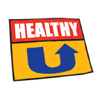Health and Safety
Keeping Kids Safe: Part 2 – Developmental Factors – Pearl Rimer
People from all over the world want to do their best to ensure the safety of the children in their care. “Streetproofing” and “stranger danger” were terms used in the past to describe information about keeping kids safe. These are now being replaced with terms like “personal safety” because the reality is that most children are harmed by someone known or trusted. As a result, safety messages for children and teens have changed so that they apply to any situation. Part 2 of the resource sheet “Keeping Our Kids Safe Is The Most Important Thing!”, written by Pearl Rimer, Manager of Research & Training at Boost Child Abuse Prevention & Intervention, offers up-to-date information for staff to share with clients as we work together to keep kids safe. This resource is available in English and French.Overcoming Barriers to Reporting Suspicions of Child Abuse & Children Exposed to Family Violence: Part 1 – Pearl Rimer
One phone call can save a child from serious harm, perhaps even death, and yet, suspicions of child abuse are not reported nearly enough. If the system is to succeed in protecting children and supporting families, a community where members follow through on their legal and moral duty to report suspicions of abuse is essential. Pearl Rimer, Manager of Research & Training at Boost Child Abuse Prevention & Intervention, discusses how to overcome barriers to reporting abuse. This resource is available in English and French.Overcoming Barriers to Reporting Suspicions of Child Abuse & Children Exposed to Family Violence: Part 2 – Pearl Rimer
Pearl Rimer, Manager of Research & Training at Boost Child Abuse Prevention & Intervention, discusses maintaining a positive client relationship where there is a suspicion of abuse is often a concern for staff. This resource is available in English and French.Spanking: Discipline or Abuse? – Pearl Rimer
Canadian research tells us that approximately 75% of physical abuse investigations are related to a child being punished inappropriately. Often in these cases, the punishment, which was not intended to injure the child, has gone too far. Although cultural factors may play a role in how children are disciplined, injuring a child is unacceptable. Physical punishment clearly exposes children to risks, and doesn’t it make sense to reduce risks whenever possible? Pearl Rimer, Manager of Research & Training at Boost Child Abuse Prevention & Intervention, discusses physical punishment and its effects. This resource is available in English and French. October is Child Abuse Prevention Month
October is Child Abuse Prevention Month
What will you do to stop child abuse?
“When you feel badly about reporting a parent, you are preventing an opportunity for the Children’s Aid Society to help and support this family. Children’s Aid is always seen as negative and they will take away your children. It’s just not true.”Pearl Rimer, BOOST Read MoreChildren’s Mental Health
For help with understanding mental health issues, finding a directory of mental health services available in Ontario, or on line education and resources for a variety of mental health issues including resilience, the following websites offer a good overview. Children's Mental Health Ontario www.kidsmentalhealth.ca Mental Health First Aid www.mentalhealthfirstaid.ca Parents for Children’s Mental Health www.pcmh.ca The Provincial Centre of Excellence for Child and Youth Mental Health at the Children's Hospital of Eastern Ontario www.onthepoint.caBlind/Low Vision Early Intervention Program in Ontario
When children are diagnosed with blindness or low vision, a referral can be made to the local Blind - Low Vision Program by a physician, ophthalmologist, optometrist, parent or caregiver. The Blind - Low Vision program offers three types of services: Family Support, Intervention Services, Consultation Services. There is a full description of current services on their website.Children’s Aid Societies Across Ontario
 Healthy U
Healthy U
Healthy U was developed as a public information and education campaign to support and encourage Albertans to lead healthier lifestyles by providing them with access to information on healthy eating and active living.
Community Resources
Provincial
Ontario Children’s Aid Society’s
The Ontario Children’s Aid Societys provide child protection services and parenting programs. This website can link you to your local CAS.
EarlyON Centres
EarlyON centres offer free drop-in programs for caregivers and children from birth to 6 years old. You can learn and play with your child, meet people or get advice.
Ontario Public Health Association
The Ontario Public Health Association (OPHA) galvanizes communities, governments and decision makers to manage current public health challenges.
Preschool Speech and Language Program
The provincial Preschool Speech and Language Program is a program of the Ontario Ministry of Children and Youth Services. Click here for local PS&L programs.
